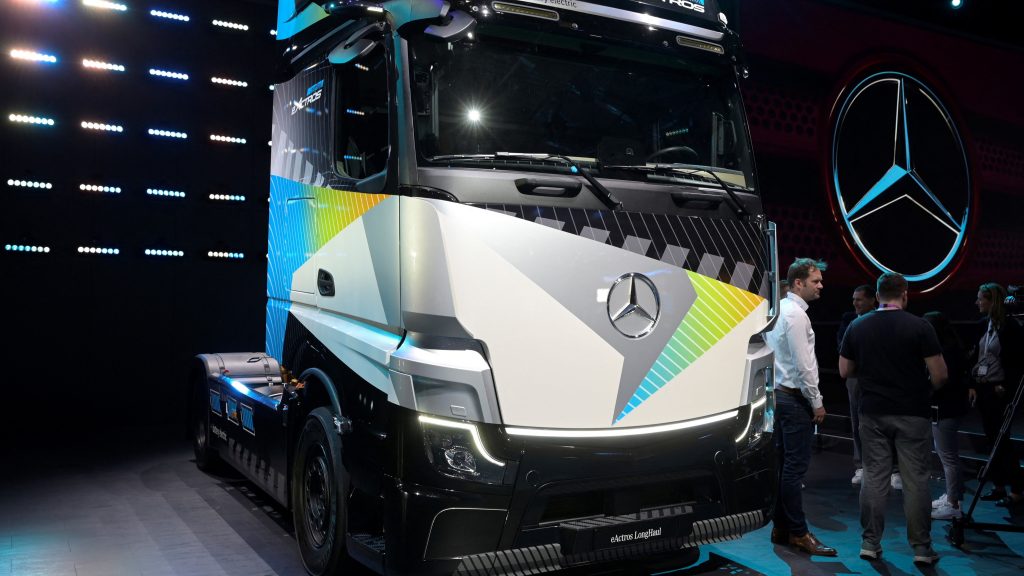Daimler Truck To Cut Employee Hours In Germany Amid Weak Europe Demand

Daimler Truck will cut hours and impose a job freeze for employees in its truck-making business in Germany, executives said on Thursday, as the truck and bus maker grapples with subdued demand in Europe and Asia.
“We will implement short-term work as of September,” CFO Eva Scherer said, adding that further cost-cutting measures were under discussion. “We are not afraid to make tough decisions and we will do that going forward.”
CEO Martin Daum said on a media call separately that short-term work, referring to a reduction in working hours, would affect employees at truck-making facilities in Germany, though buses were unaffected.
“Job cuts at the moment are not thought of, but we’re definitely not hiring”, he said.
The firm’s first-half total orders, an indicator of future sales, sank 10% from a year ago to 198,376 units.
“Demand in key truck markets, particularly in Asia and Europe, has weakened”, Daum said.
Daimler Truck cut its guidance after the market closed on Wednesday, with the firm now expecting 2024 earnings before interest and taxes “significantly below” that of 2023.
Europe is dragging on other truck makers as well. Traton, a truck and bus maker majority-owned by Volkswagen, reported a decline in order intake in the continent even as it rose in the Americas during its first half.
The company said price hikes helped its Trucks North America business, which made up half its adjusted profit last year, to achieve a margin of 14.5% in the second quarter, up from 13.1% in the prior year, even as unit sales fell.
Lower volumes at its Europe-focused Mercedes-Benz business, however, dragged its margins down to 6.5% in the second quarter from 9.8% last year.
Mercedes-Benz accounted for about 40% of Daimler Truck’s earnings last year.
(Reporting by Louis van Boxel-Woolf, Editing by Miranda Murray and Bernadette Baum)




